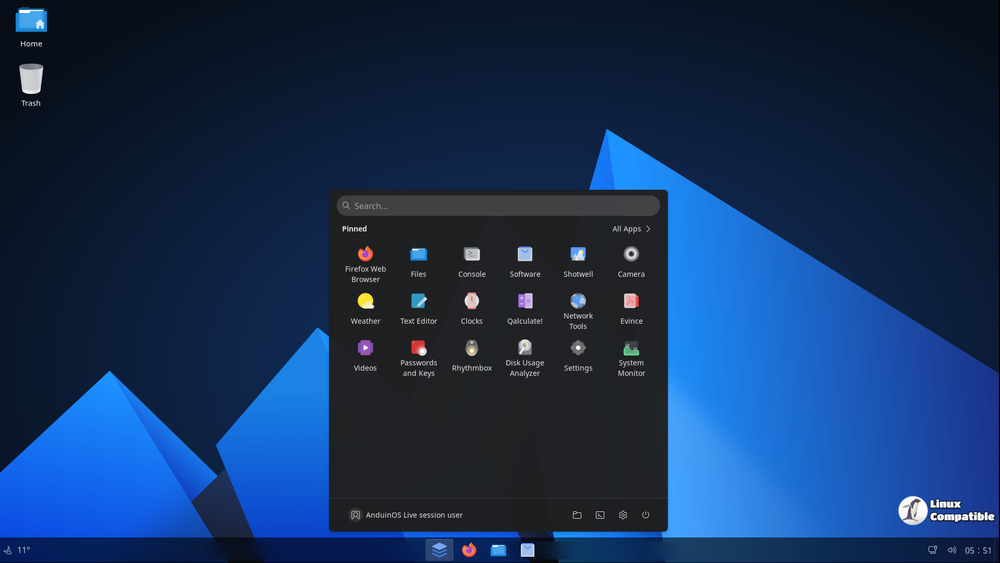AnduinOS, a Windows 11-inspired operating system, has recently released three updates: versions 1.1.6, 1.2.6, and 1.3.3. Each of these builds focuses on enhancing accessibility, adding new features, and fixing issues to improve user experience.
Key enhancements in the latest version 1.3.3 include:
- Accessibility Improvements: A fix for an issue that prevented screen readers from reading text properly.
- Lua Script Support: The addition of the librime-plugin-lua for users of ibus-rime, allowing support for Lua scripts, which currently impacts zh_CN users by default.
- PolicyKit Integration: Inclusion of policykit-desktop-privileges in the default application list, enabling no-password prompts for actions such as mounting drives and performing simple updates.
Versions 1.1.6 and 1.2.6 also included these same enhancements, emphasizing the consistency of improvements across builds.
Currently, AnduinOS does not have a dedicated software repository, meaning updates are executed through a bash script rather than a traditional package manager. Users can easily upgrade to the latest versions by running the command `do_anduinos_upgrade`, transitioning seamlessly across the versions, such as from 1.1.0 to 1.1.6, or 1.2.0 to 1.2.6.
Looking ahead, there are plans to integrate a more user-friendly update mechanism directly with the `sudo apt upgrade` command, simplifying the process for users in future releases.
Overall, AnduinOS continues to evolve, focusing on user accessibility and convenience, while also laying the groundwork for a more robust update system. As the platform matures, it aims to enhance functionality and user engagement, potentially attracting a broader audience of users seeking a Windows 11-like experience on a different kernel
Key enhancements in the latest version 1.3.3 include:
- Accessibility Improvements: A fix for an issue that prevented screen readers from reading text properly.
- Lua Script Support: The addition of the librime-plugin-lua for users of ibus-rime, allowing support for Lua scripts, which currently impacts zh_CN users by default.
- PolicyKit Integration: Inclusion of policykit-desktop-privileges in the default application list, enabling no-password prompts for actions such as mounting drives and performing simple updates.
Versions 1.1.6 and 1.2.6 also included these same enhancements, emphasizing the consistency of improvements across builds.
Currently, AnduinOS does not have a dedicated software repository, meaning updates are executed through a bash script rather than a traditional package manager. Users can easily upgrade to the latest versions by running the command `do_anduinos_upgrade`, transitioning seamlessly across the versions, such as from 1.1.0 to 1.1.6, or 1.2.0 to 1.2.6.
Looking ahead, there are plans to integrate a more user-friendly update mechanism directly with the `sudo apt upgrade` command, simplifying the process for users in future releases.
Overall, AnduinOS continues to evolve, focusing on user accessibility and convenience, while also laying the groundwork for a more robust update system. As the platform matures, it aims to enhance functionality and user engagement, potentially attracting a broader audience of users seeking a Windows 11-like experience on a different kernel
AnduinOS 1.1.6, 1.2.6 and 1.3.3 released
The Windows 11-inspired AnduinOS has three new releases: 1.1.6, 1.2.6, and 1.3.3. The new builds address accessibility concerns, incorporate librime-plugin-lua for ibus-rime users to enable Lua script support, and include policykit-desktop-privileges in the default application list.


